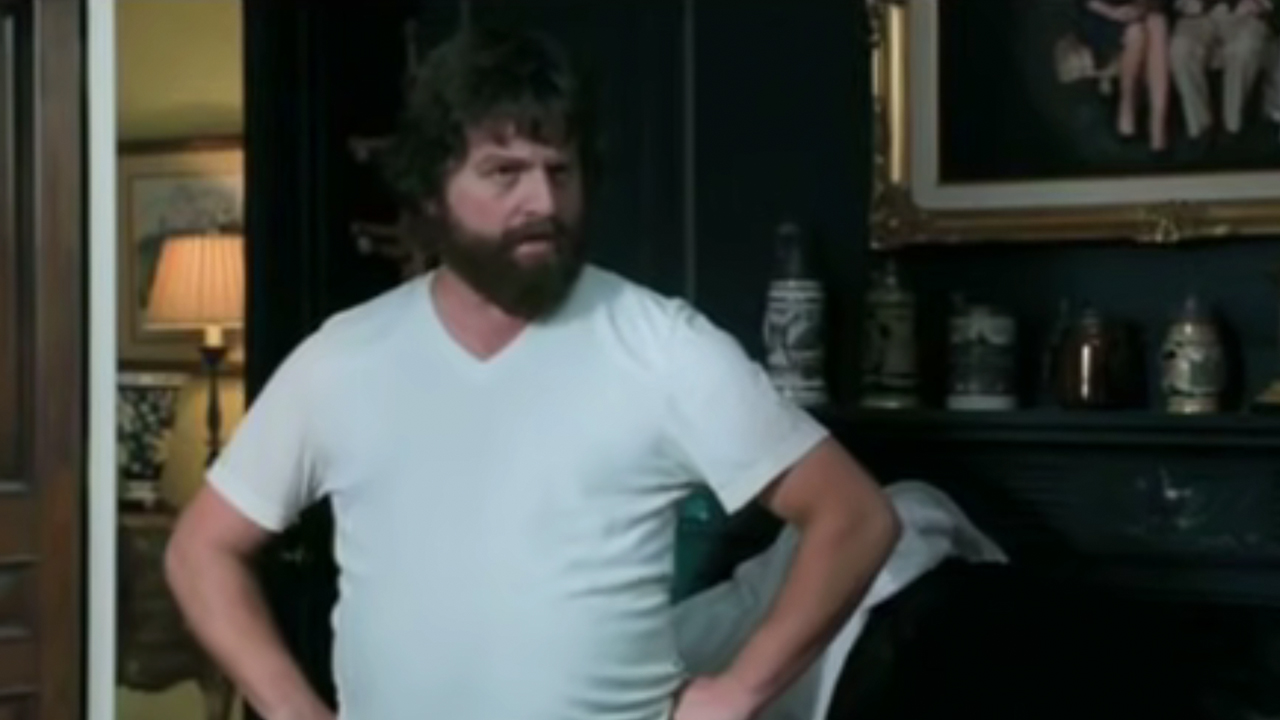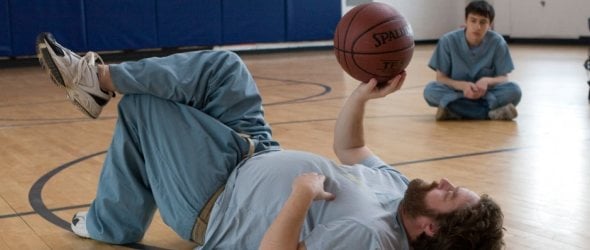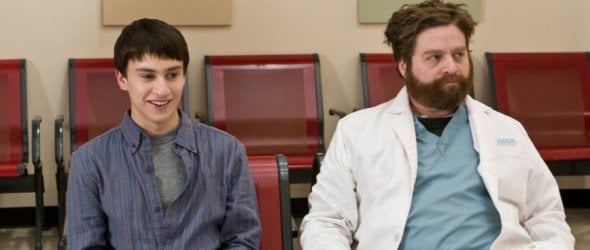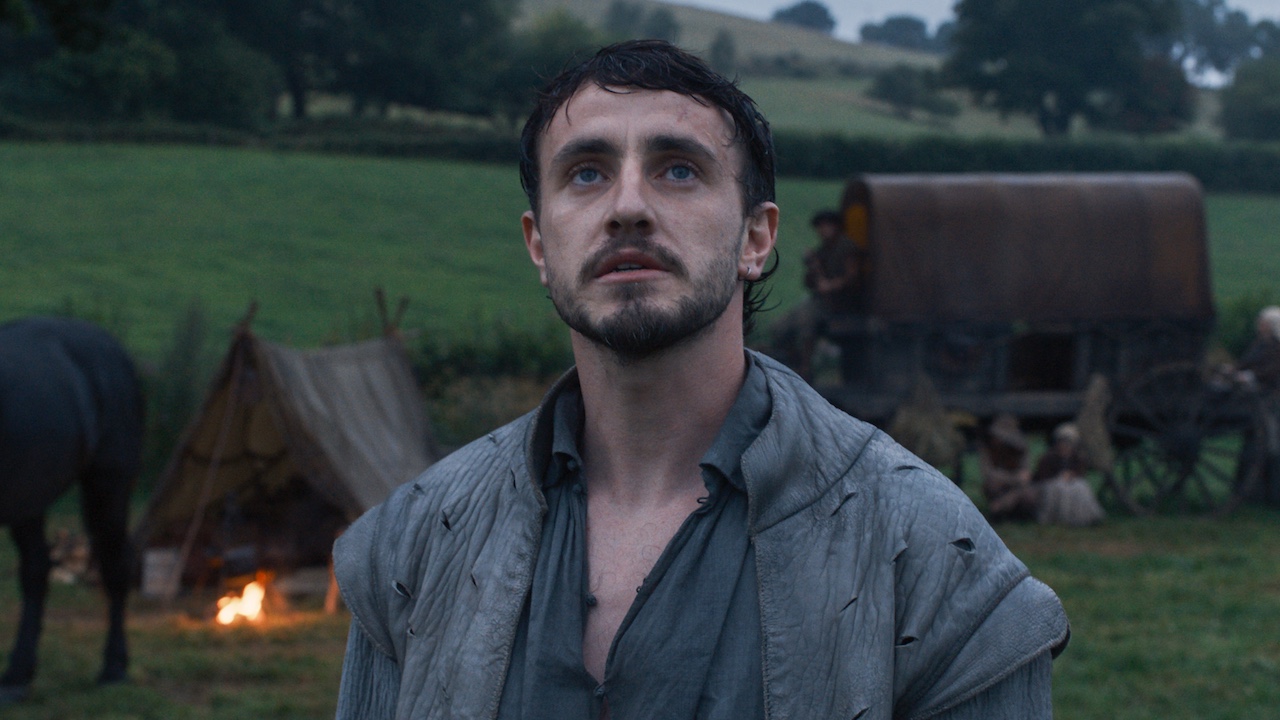Interview: It's Kind Of A Funny Story Directors Anna Boden And Ryan Fleck

Your Daily Blend of Entertainment News
You are now subscribed
Your newsletter sign-up was successful
Anna Boden and Ryan Fleck heard this a lot as they did press for their new film, but it's true: It's Kind of a Funny Story, which opened last Friday, is a big shift for the directors of Half-Nelson and Sugar, not just in scale and content, but in the simple fact that it employs a cast of actual, trained actors. Boden and Fleck became indie darlings for their verite, very serious previous films, which tackled topics as different as a drug-addicted teacher in Brooklyn and a Dominican kid who moves to the United States to become a baseball player. It's Kind of a Funny Story isn't just their first adaptation, based on Ned Vizzini's semi-autobiographical novel, but their first film to really qualify as a comedy-- and that's without even mentioning the glitzy musical number set to "Under Pressure."
Catching up with Fleck and Boden at the Toronto International Film Festival last month, I asked them about making this shift in their directing styles, about expanding the character played by Zach Galifianakis significantly from the book, and about keeping a New York feel even when so much of the movie takes place in a hospital's psych ward. Check it out below, and catch It's Kind of a Funny Story in theaters now.
This movie isn't just a shift in tone and content for you guys, but you're really embracing this Hollywood influenced style. Can you talk about why you wanted to incorporate that?
Fleck: Well, it's very much a genre movie. It's a coming-of-age, kind of a high concept movie, teenager in the adult psych ward. There's a lot of outrageous camera work, there's a musical number, there's animation, but I think when we're in the hospital, it's fairly grounded in a way. There's a fair amount of handheld and not too much crazy camerawork in the scenes that take place between Zach and Keir and the other patients in the hospital. It seemed like on this one we had the opportunity to have some fun with some cinema.
When you're adapting a book for the first time and making changes to it, is it hard to jump off that cliff? Was it Ned Vizzini's support that made that possible?
Fleck: We can't make a movie unless we make it our own and make it personal for us. Thankfully Ned understood that he made his piece of art, he made his novel, and that's his and it will be on a shelf forever. He understands that movies are what we do, and we're going to make our version of it and put it on the shelf forever. He was a big fan of the movie, fortunately.

It's interesting that you guys expanded the character of Bobby before Zach Galifianakis was on board, because he seems so well-suited to it. Why did you expand the character?
Your Daily Blend of Entertainment News
Boden: One of the things that drew us to the book was the idea of being able to tell a story about a kid whose relationships with people who he never would have met in his normal life really changes his perspective on his own life, and his problems and all that. To do that successfully we felt like we wanted to be able to focus our attention on one relationship we could really dig into. It seemed like the natural choice would be to combine a couple of characters from the book.
You could have made the whole thing a love story and just made it about the two kids. Did you just want to have that balance?
Fleck: Yeah, that seems a little too simple. That story doesn't interest us alone itself. But in conjunction with the Bobby story, the love story works better. We like stories about friendship.
I like the New Yorkness of the movie, even though so much of the movie is shot indoors, like in that flashback sequence shot on 16 mm [in which Craig and a friend ride their bikes across all of Brooklyn]. How did you guys include that throughout the shooting?
Fleck: I don't know if we planned that out from the beginning, but it was like, let's get out, let's get out of the hospital for a while and show Brooklyn. A love letter to New York City. that wasn't the intent, but it definitely shines.
Boden: Probably our secret obsession with the New York City landscape comes out in this film as well as the other ones, even though we weren't intending to make that be what it was about.
How did you pull off that shot on the Brooklyn Bridge? It's so crowded all the time.
Boden: Well, it was winter, so it wasn't as crowded. Fleck: We got lucky, it was early December and at night, so it wasn't that crowded but it was a good night, and it wasn't that cold. It wasn't totally uncomfortable for us. At some point we had a big crane overlooking the traffic, and we were like, "How the hell did they let us do this?" Quick, shoot before they kick us out.
You guys have cited John Hughes as an influence on the film, when most people are really afraid to be compared to him, and will go out of their way to avoid the comparison. It's kind of a bold move.
Boden: It's definitely different enough so that we're not exactly trying to mimic it precisely. What we do want, what we were hoping to achieve, is capture some of that spirit. We have an homage to The Breakfast Club in it when they're running around the hospital. But really nothing more than trying to capture that teen spirit, when we were in elementary school [watching Hughes movies] imagining what it was like to be teenagers.

Teenagers are so often represented in movies, and so often they're false, and sometimes they're truthful. Was there a certain element you wanted to get at?
Fleck: The voice of the book was a complete lack of cynicism. This kid was so earnest and open to the world. That reminded us of the John Hughes movies, where there's not the adult, cynical filter of looking back and mocking the kids in some ways. It treated their issues seriously.
What kind of learning curve was it for you guys to work with professionals for the first time?
Fleck: There wasn't much. We had different levels of experience, but everyone got what we were doing and had a good time.
Boden: We just cast people we thought could do it and do a good job. Usually they can. We cast people who we like and let them do what they're good at. It was interesting to see how different actors like to work differently, but it wasn't a challenge at all.
Staff Writer at CinemaBlend

